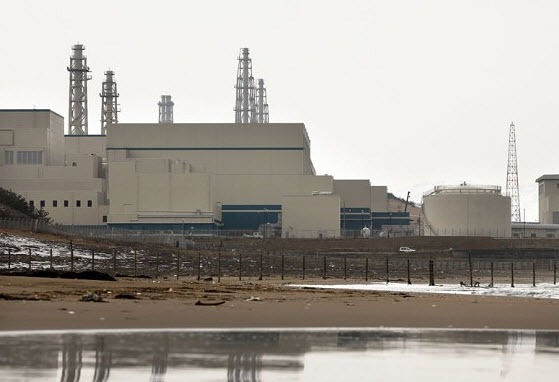|
Japan Is Left With Only One
Working Nuclear Reactor

Fukushima Radiation Fear
EMF Computer Protection
Magnetic Field Detector
By MARI IWATA
TOKYO—Japan took a step closer to having no nuclear-energy
supply Monday as the closure of another plant left it with
only one reactor in operation, with a government decision on
whether to begin restarting dozens of idled reactors still
to be made.
Tokyo Electric Power Co., the operator of the
crisis-hit Fukushima Daiichi nuclear plant, shut the No. 6
reactor at its Kashiwazaki-Kariwa plant in northern Japan
for regular maintenance Monday, leaving the entire
nuclear-generating capacity of Japan's biggest power utility
off-line.
The country's last working reactor, the No. 3
unit at the Tomari plant on the northernmost island of
Hokkaido, will be shut for maintenance on May 5, operator
Hokkaido Electric Power Co. said Monday.
If no other reactors are restarted in the
meantime, that would leave Japan with no nuclear energy to
help power its huge economy ahead of the peak summer demand
period.
Government officials have said that a lack of
nuclear power, which provided 30% of Japan's electricity
generation before the crisis last March, could depress
industrial output and encourage companies to shift
manufacturing overseas.
"Assuming it is safe to do so, reactor Nos. 1
and 2 at the Tomari plant should be restarted soon to ensure
stable power supply during the summer," a Hokkaido Electric
spokesman said.
Japan requires utilities to conduct maintenance on reactors
every 13 months, and none of those taken off-line since the
Fukushima accident last year have been restarted amid public
fears over safety.
Government and nuclear industry officials have
sought to use "stress tests" that gauge resilience to
natural disasters to assuage public misgivings.
Last week, the independent Nuclear Safety
Commission endorsed the results of tests on two reactors in
central Japan, while on Monday the Nuclear Industry Safety
Agency, a separate regulator under the industry ministry,
approved tests on a reactor at the Ikata plant in Shikoku,
western Japan.
After approval by the two regulators, the
results will be reviewed by the government, which is
expected to then seek approval from local communities for
the eventual restart of cleared reactors.
But officials from areas that host plants have
been skeptical about the validity of the tests, which are
based on computer modeling, and have requested the
government make new regulations that better reflect lessons
learned about safety from the Fukushima disaster.
"It is difficult to see any reactors restarting
by this summer," because making new regulations is likely to
take time, SMBC Nikko Securities Inc. analyst Hidetoshi
Shioda said in a research note.
Japan managed to evade any major power shortages last summer
through compulsory usage restrictions for large-lot users
and voluntary conservation efforts. In Tokyo, many buildings
dimmed their lights and turned down air conditioners even as
temperatures reached more than 35 degrees Celsius (95
degrees Fahrenheit).
But nuclear power was still generating 11% of
Japan's power supply last August, compared with only 2.5% in
February of this year, according to industry data, and
utilities have been using relatively more expensive natural
gas and oil to make up for the shortfall.
"We are studying how much
power-generation capacity we can secure this summer," a
Tepco spokesman said.
Japan's industry minister, Yukio Edano, said last week that
a decline in Japan's nuclear-power capacity had been
expected since the Fukushima Daiichi crisis last March and
didn't have any specific comment on the closure of the No. 6
reactor at Tepco's Kashiwazaki-Kariwa plant.
Tepco separately on Monday provided new details
of the state of the No. 2 reactor at Fukushima Daiichi,
believed to be among the most seriously damaged of the six
units.
Based on an endoscope survey under way since
January, officials said that there appeared to be 60
centimeters of water at the bottom of the containment
vessel, somewhat less than previously estimated. At least
some of the nuclear fuel is believed to be in the
containment vessel, which surrounds the reactor vessel as a
second layer of protection.
But the officials said that the water appears to
be enough to avoid any risk of overheating of the fuel
because the temperature in the vessel remains stable at 48
degrees Celsius.
Previously, Tepco had said that the surveys by
the endoscope, a long flexible tube with a camera attached,
had shown considerable rust in the vessel, demonstrating the
large amount of damage sustained in the early days of the
accident.
Officials have said they believed that there was
leakage from the No. 2 unit, accounting for at least some of
the hundreds of tons of radioactive water that have been
plaguing clean-up efforts at the plant.
http://www.emfnews.org/store |
